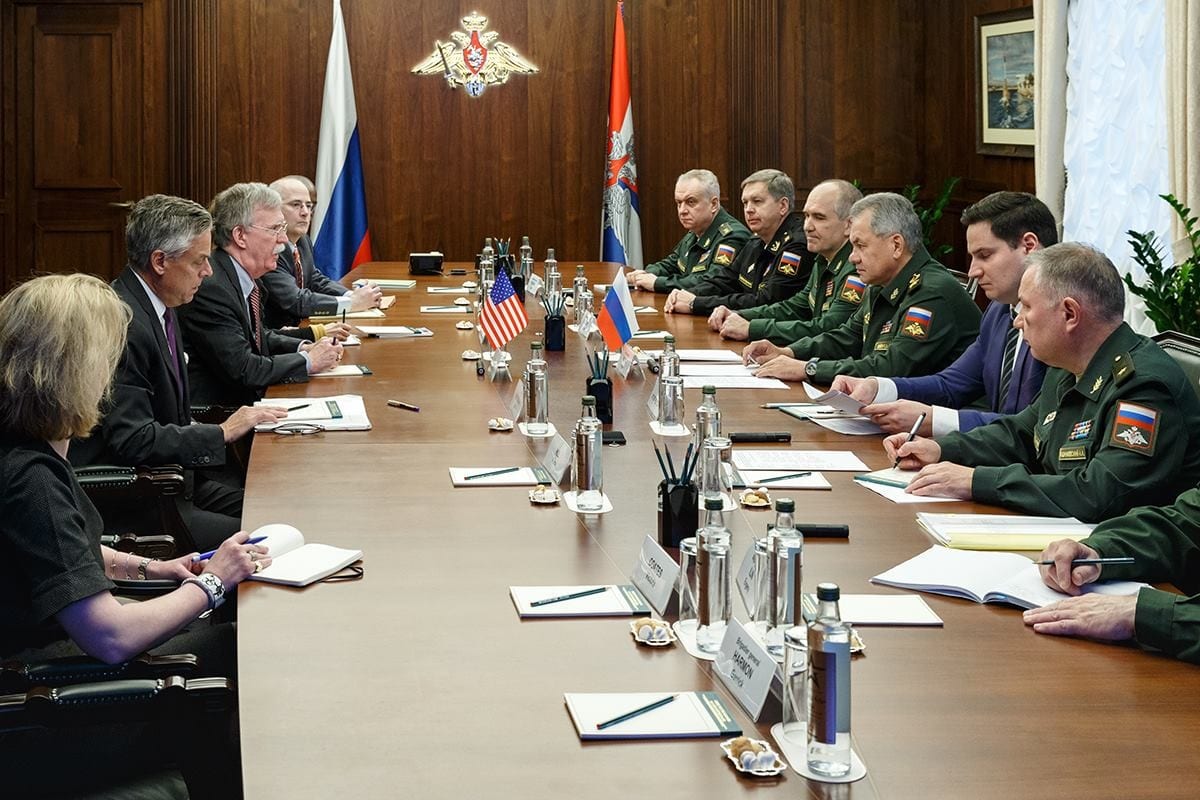 Russian Ministry of Defense
Russian Ministry of Defense
Fighting to Save the INF Treaty
On Saturday October 20th President Trump announced that the US was going pull out of the Intermediate Range Nuclear Forces Treaty (INF). The INF forced both the US and Russia to eliminate their ground-launched ballistic and cruise missiles with ranges between 300 and 3,400 miles. While Russia is violating the treaty, a pullout before exhausting all other options, is ill-advised. This would raise the risk of a dangerous nuclear arms buildup and leave a murky path forward for future arms control agreements.
In devising a strategy to counter the Russian missile deployments, it is important to keep in mind that the issue is not a deterrence issue but rather one of arms control. This is because the nuclear threat posed by the deployment of the Russian missiles is negligible as Russia is already deterred by the existing US nuclear arsenal. Therefore, actions by the US should be aimed at resolving the issue diplomatically instead of militarily.
To increase the pressure on Russia to bring it back into compliance with the INF, the US could use its military assets that would not be in violation of the INF. The US could consider modifying its nuclear posture in Europe by increasing its nuclear capable air and naval assets in the region in order to send a message to the Kremlin over its missile deployments. Both these actions should be done in direct response to the Russian deployment.
Alongside utilizing its military assets, the US could create political room for the Russians to reenter the treaty by overtly reaching out to the Europeans about bringing them into the INF. The Europeans would potentially have justification to join the INF as the EU, France and the UK have all come out against a US pullout from the agreement. If the Europeans agreed to join the INF, Russia might have sufficient political cover to come back into compliance without giving the appearance that it succumbed to US pressure. Even if the US failed to bring the Europeans into the agreement, the very act of overtly reaching out to them would show the world that the US was committed to diplomacy and arms control.
A US pullout before exhausting all other options could potentially lead to a dangerous arms race between the world’s two largest nuclear powers, increasing the chance of a catastrophic nuclear war. Trump hinted at an arms race at a rally on Monday when he stated, “We will build [our nuclear arsenal] up.” A US pullout could also jeopardize another major treaty currently regulating the nuclear stockpiles of the US and Russia: New START. The treaty is set to expire in 2021 unless both Moscow and Washington agree on an extension. However, if the two nations fail to find a path forward on INF, this is may be in jeopardy.
Now, if Russia refuses to come back into compliance after the U.S. has truly exhausted every means at its disposal to encourage it to do so, then withdrawing from the INF is the right choice. But the United States has not made this a truly concerted effort.
By countering Russian violations with a robust diplomacy backed by credible military posturing, the US can simultaneously both enhance its security and arms control goals. Conversely, failure to pursue these options could lead to a catastrophic arms race and with it an increased chance of nuclear war.






